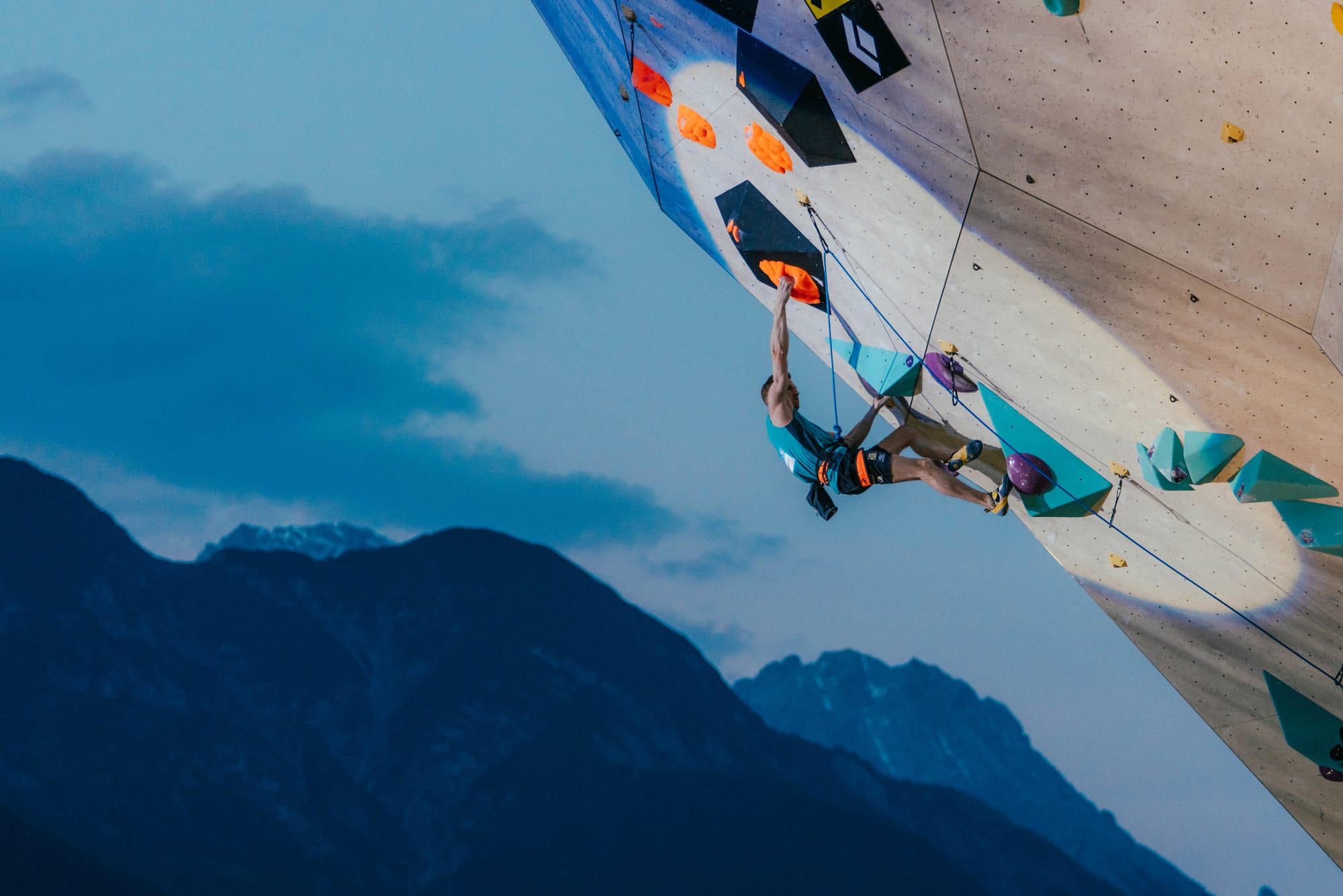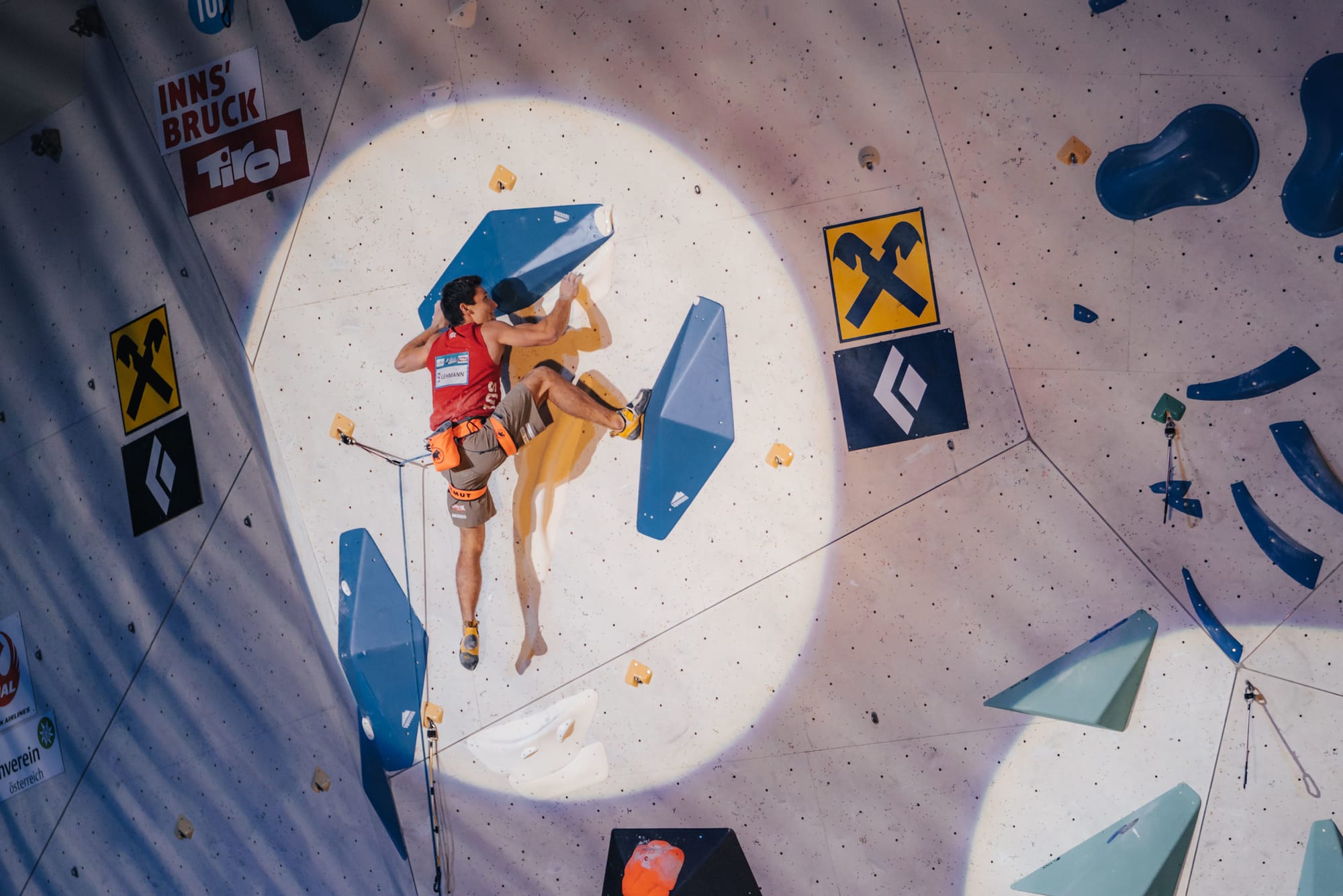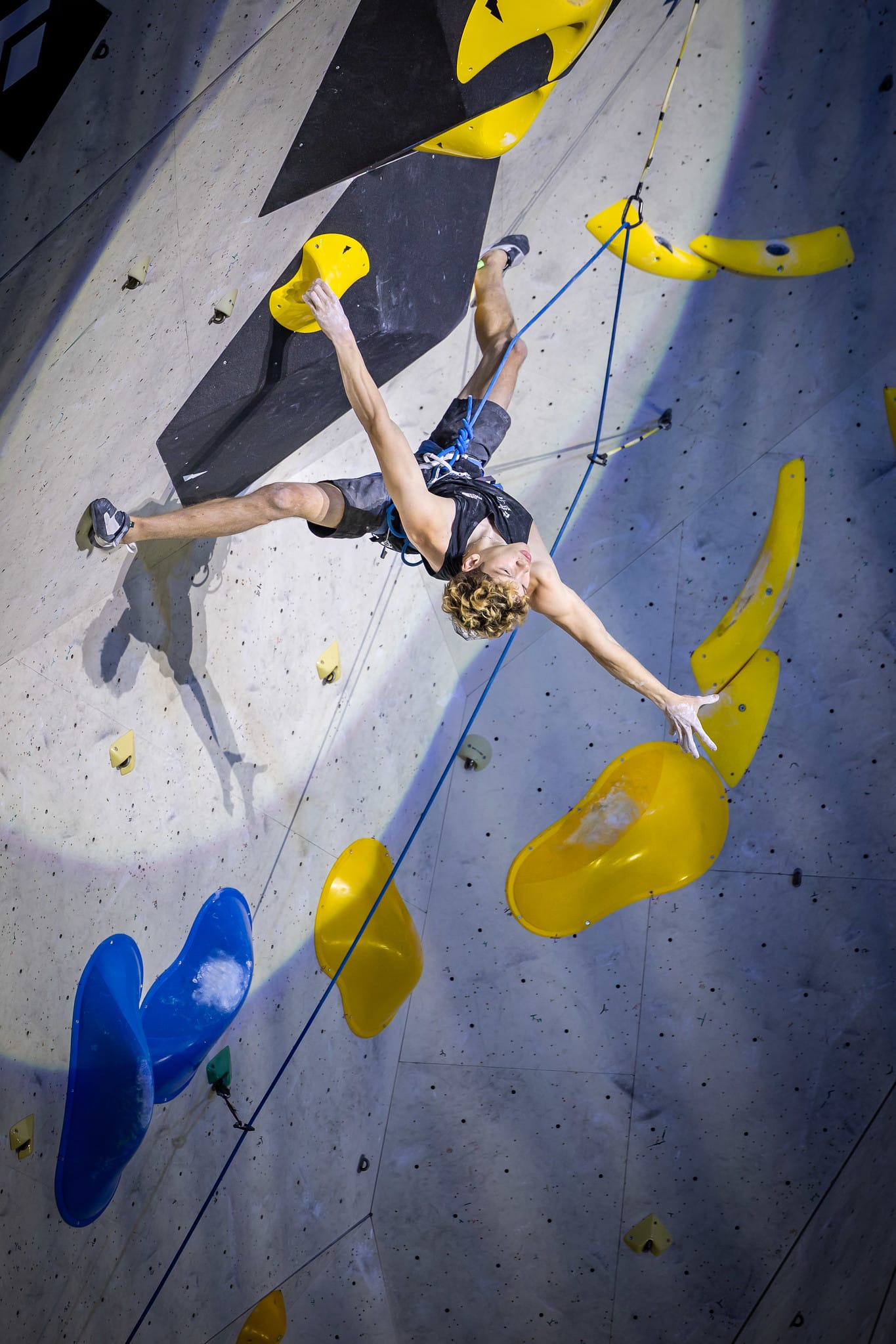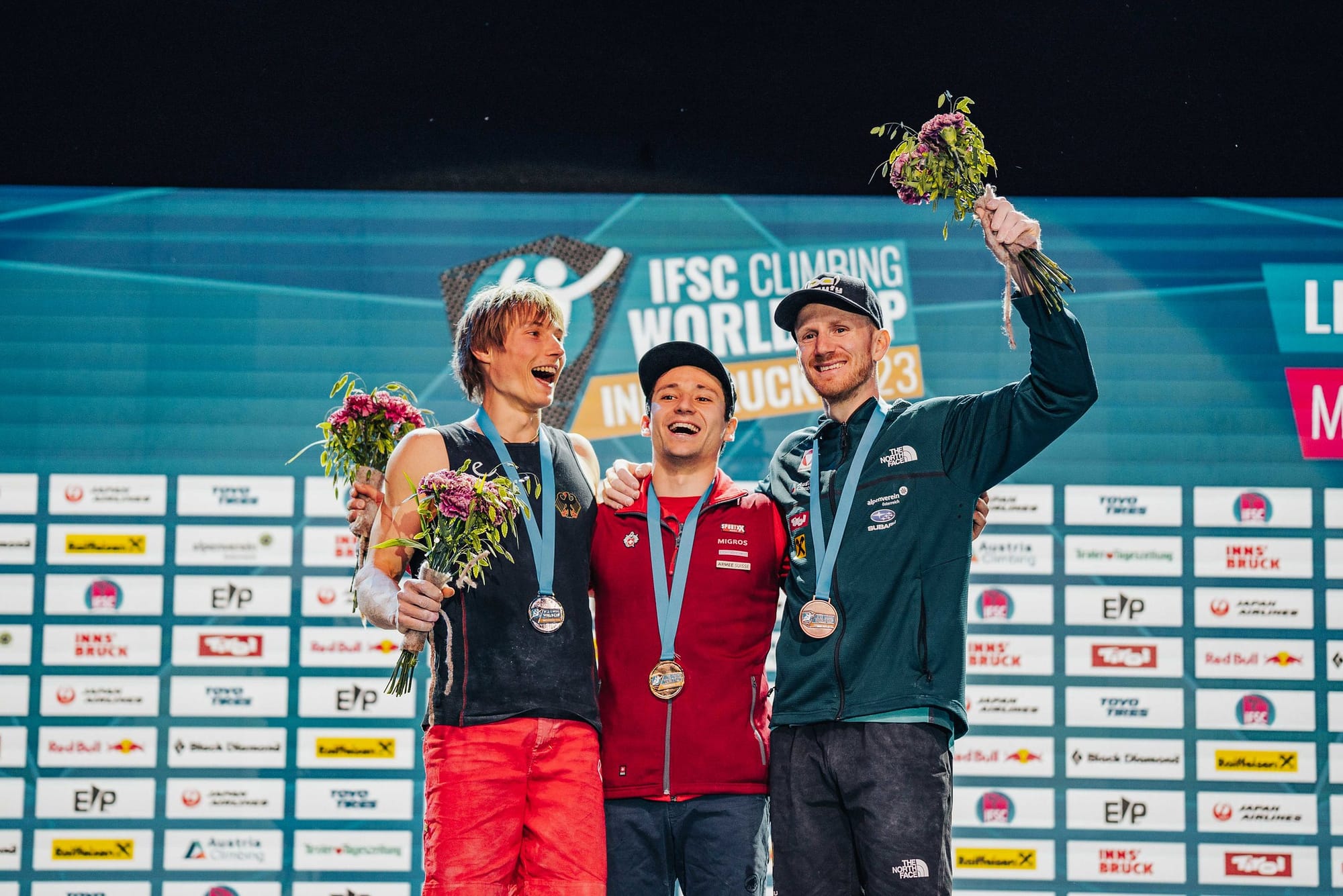Sacha Lehmann won his second Lead World Cup Gold medal ahead of Alex Megos and Jakob Schubert at the first Lead World Cup of the season in Innsbruck. Lehmann’s first win was in Villars in 2019.
The men’s lead qualification started less than 12 hours after the boulder final had finished, but that did not stop Sorato Anraku from placing first in the qualification round. Megos, Satone Yoshida, Lehmann and Colin Duffy would all place joint second heading into the semi-final round.
The semi-final route went up the steep overhanging section of the Innsbruck wall. The route consisted of 4 distinct sections, starting with blue and white slopers on the beginning vertical section before moving into a series of teal volumes and purple holds at hold 11.
This section required a foot-first sequence to spin around in the middle of it, challenging the athletes’ route reading and ability to commit to the difficult sequence.
The next section, starting at hold 24, was made up of large orange holds, which were textured like sandstone with ripples in the holds, making it hard to find the best part of the hold. Athletes would reach the headwall at hold 36, where the holds would change to blue and white volumes and crimps before ending at hold 46.

The Olympic Champion, Alberto Ginés López, would set an early high point, falling while on a large white undercling on the headwall at hold 40. Mejdi Schlack’s choice to miss the Boulder World Cup was vindicated when he matched Alberto’s high point. Only Taisei Homma, Hashiro Higuchi, Jakob Schubert and Sascha Lehmann would go higher. Sacha made it highest on the route, falling while moving to hold 44, a small white blocked crimp, and 2 moves from the top.
Megos and Yoshida would tie for 8th on countback after both fell, going for hold 40, making a 9-person final.

Many specialists missed the final, including Luka Potocar, Toby Roberts, and Duffy, who fell before reaching the headwall. Jesse Grupper fell at the same point as Alex and Satone, missing out on the countback to qualification.
The men’s final route would take a meandering route through the righthand side of the wall. The route consisted of 4 sections, starting on green slopers and pockets before traversing right into a series of large blue and yellow Squadra macros, with athletes able to get a good rest on hold 22 with a knee bar between two volumes. The next section started with a foot swing across to the two-finger pocket of hold 32, which sapped the power from the athletes. This section would continue with dual-tex yellow pinches and crimp on large black volumes through the headwall at hold 44. The final section comprised purple holds and required the athletes to traverse left to meet up with the women’s route and clip the chains from hold 52.

Megos came out second and climbed up to the headwall, falling while reaching for hold 45 despite making it look easy until then.
All the athletes were untroubled by the lower sections, with only four holds settling 9th from 1st. Taisei Homma fell lowest while reaching up to hold 41, the first of a series of crimps guarding the headwall. He scored 40+. Four athletes fell, reaching up for a yellow crimp with their left hand, all tied on 42+, including Schubert, Anraku, Schlack, and Yoshida.
Only Lehmann would match Megos, winning the Gold medal on countback to the semi-final. Schubert would take bronze on countback to the semi-final ranking at the head of the 42+ group.
| Rank | Athlete | Country | Score |
|---|---|---|---|
| 1 | Sascha Lehmann | Switzerland | 44+ |
| 2 | Alexander Megos | Germany | 44+ |
| 3 | Jakob Schubert | Austria | 42+ |
| 4 | Sorato Anraku | Japan | 42+ |
| 5 | Mejdi Schlack i | France | 42+ |
| 6 | Satone Yoshida | Japan | 42+ |
| 7 | Masahiro Higuchi | Japan | 42 |
| 8 | Alberto Ginés López | Spain | 42 |
| 9 | Taisei Homma | Japan | 40+ |

Lehmann was happy with his win. In his post-competition interview, he said, “I knew I could climb well and I am a strong climber, but it’s a packed field, we saw that in Boulder with so many young athletes coming in. My Boulder season didn’t go that well so I hoped I could do better in Lead. I worked hard at Lead, but I wasn’t sure where I was at. I know I can perform on the big stage, and I did, so it feels amazing.”





